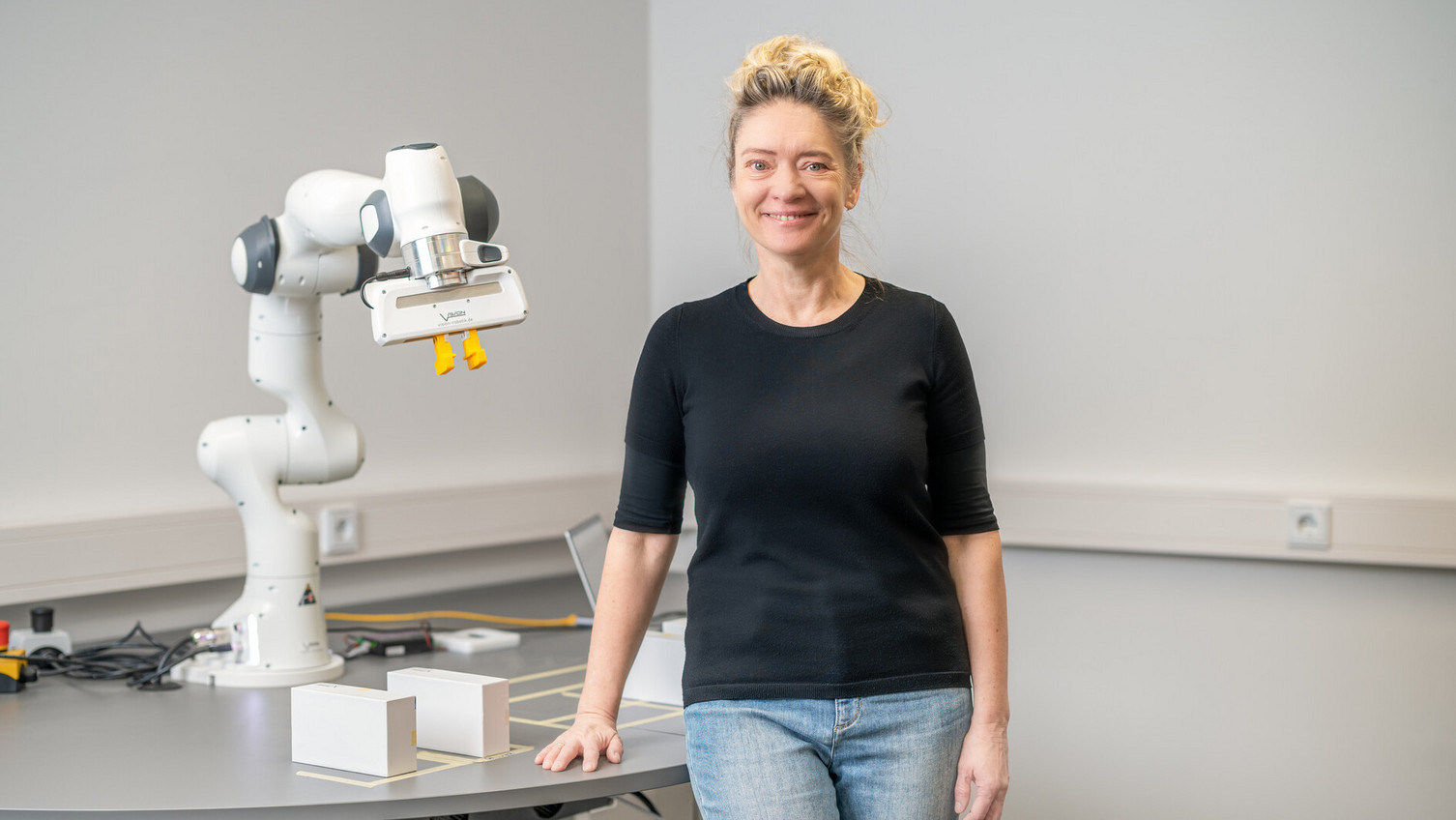Women in engineering professions: Mission MINT
2023-02-06 Nationwide, only about a quarter of engineering students are female. MINT brings female students, engineers and schoolgirls together. The research project aims to strengthen self-confidence, motivate with a sense of achievement and inform about career profiles.
 ©Markus Tiemann (Shooting: 20221214_Ingenieurinnennachwuchs)
©Markus Tiemann (Shooting: 20221214_Ingenieurinnennachwuchs)
According to the Association of German Engineers (VDI), about 20 percent of working engineers are female. With the MINT research project, PD Dr. Brit-Maren Block and Professor Dr.-Ing. Matthias Schmidt want to help increase the proportion of women in technical professions. "Often schoolgirls are not confident about the technical content of an engineering degree. But they also lack an idea of the later profession and the enormous range of application fields," explains Brit-Maren Block, Dean of Studies College at the Faculty of Management and Technology. This reflects both research findings and her own observations as a teacher of electrical engineering.
MINT brings female engineering students together with high school students through a hybrid study selection programme. The tandems develop STEM projects on a topic of their own choice from the lives of young women, such as sustainability, e-mobility, SmartHome or energy transition. The programme is low-threshold: the schoolgirls do not need to have any special prior knowledge. The meetings can take place both digitally and on site. For one semester each, the young women work on their idea, plan and develop solutions. "Motivation and the experience of success are important steps in this process that pay off in increased self-efficacy," explains Brit-Maren Block.
In addition to STEM students, practical representatives are involved in the programme as role models to demonstrate the diverse STEM occupational fields. The role models are supposed to stand for achievable and real-life goals. Representatives from different phases of life are guests at the accompanying classroom events. "For example, a female scientist who is currently doing research in Norway; an engineer and mother of three children and an executive who is not yet 30 years old present themselves," explains Matthias Schmidt, Professor of Production Management. Within the three-year project period, a female STEM network is to be established.
The research project aims at evidence-based and transferable findings on successful STEM study choice orientation for women in the context of digital transformation, which at the same time contribute to subject didactics research in the engineering sciences and also strengthen the school-university network. The success of MINT is measured, among other things, with participatory observation, questionnaires for self-assessment and assessment by others, and interviews.
The Federal Ministry of Education is funding MINT in the BMBF priority area "Increasing the proportion of women in the MINT research and innovation process: strengthening self-efficacy, initiative and creativity" (Mission MINT - women shaping the future) with 257,000 euros.
